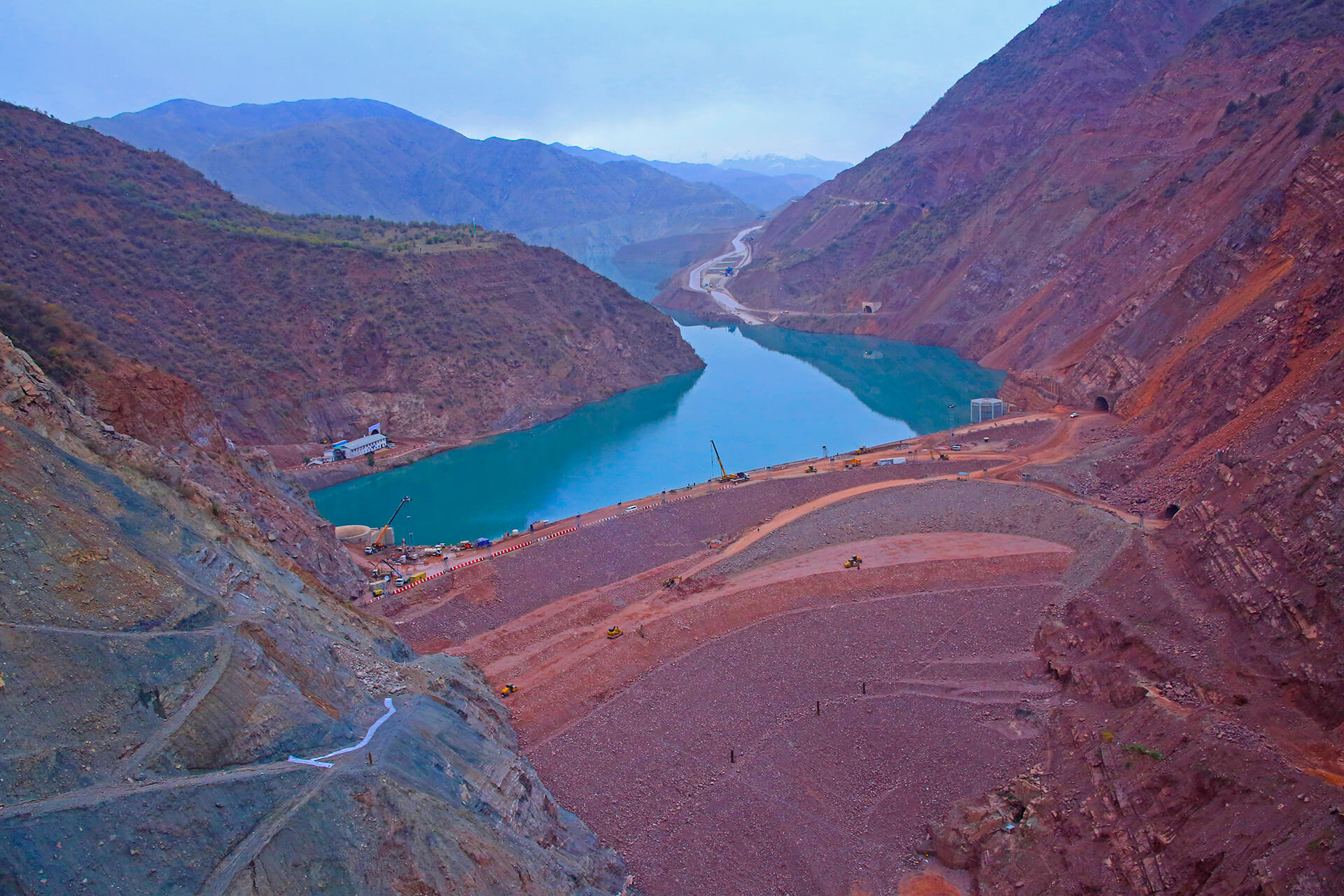The Government of Tajikistan has refrained from raising loans for completion of the construction of the Roghun hydropower plant from European banks, Tajik Finance Minister Faiziddin Qahhorzoda told reporters in Dushanbe on February 17.
The minister noted that they are currently carrying out negotiations on attracting grants and highly concessional from international financial institutions and some other funds.
Qahhorzoda stressed that attitude of potential financial donors to the Roghun project has changed in recent years and they are ready to finance this project.
Thus, the World Bank approved a US$15 million grant for the Technical Assistance for Financing Framework for the Roghun Hydropower Project and the Asian Infrastructure Investment Bank (AIIB) approved allocation of a US$5 million grant to support strengthening the Roghun Hydropower Project’s financial and commercial frameworks, enhancing its environmental and social sustainability, and establishing the Project’s benefit-sharing program, Qahhorzoda noted.
He further noted that they are currently carrying out negotiations with all donors that could provide the highly concessional financing for implementation of the Roghun Hydropower Project.
“Besides, the country budget for this year earmarks 2.5 billion somonis for completion of the construction of the Roghun hydropower plant,” the minister added.
Recall, the Ministry of Finance (MoF) noted in late November 2020 that the Government of Tajikistan intends to attract US$500 million of external loans to finance national energy development projects. Of this amount, US340 million were supposed to be used for completion of the construction of the Roghun hydroelectric power plant.
The Tajik authorities reportedly hoped to get these funds from Credit Suisse (Switzerland) and Lansesbank Baden-Wuerttemberg (Germany).
Tajikistan founded OJSC NBO Roghun with an authorized capital of 116 million somonis for completing the construction of the Roghun HPP in April 2008 after it formally revoked a contract with Russia's RusAl aluminum company for the construction of the Roghun HPP in August 2007. The Tajik government accused the Russian company of failing to fulfill the contract signed in 2004. Tajik authorities and RusAl became bogged down in the hydroelectric plant’s dam model and height, crucial factors in its capacity.
To raise funds to complete construction of the Roghun HPP the government started to sell shares in Roghun to people on January 6, 2010. Tajikistan has reportedly issued 6 billion somonis worth of 5 million Roghun shares.
In 2016, construction duties on Roghun were assigned to Italian company Salini Impregilo (currently Webuild).
The project is broken down into four components, with the most expensive one involving the building of a 335-meter-high clay core rockfill dam — the tallest in the world — which will entail costs of around $1.95 billion. Construction of the Roghun hydropower plant is expected to be completed in 2033.
Two of the six turbines have already started producing energy for sale to raise funding to complete it. The first turbine went into service in November 2018 and the second one was introduced into operation in September 2019.
The Ministry of Finance noted in early August last year that 37.7 billion somonis have been spent for construction of this hydropower plant since 2008.
In his address to a joint meeting of parliament, President Emomali Rahmon said on December 23 last year that the construction activities at the site for construction of the Roghun hydropower plant are ongoing dynamically. To this end TJS3.2 billion (equivalent to 315 million U.S. dollars) were channeled in 2022.
To-date, spending on the construction of the Roghun hydropower plants has reportedly exceeded 40 billion somonis since 2008.
If built as planned, the Roghun hydropower plant is expected to end chronic power shortages in Tajikistan and allow it to export electricity to neighboring countries.
Members of Tajikistan’s lower house (Majlisi Namoyandagon) of parliament on January 16, 2020 voted for endorsement of amendments proposed by the government to the country’s law on privatization of state-owned properties that will allow foreign investors to buy shares in the Roghun hydropower plant.




